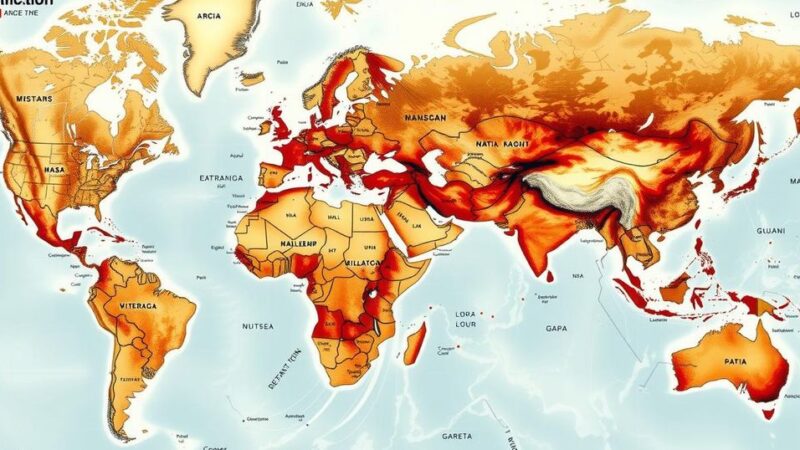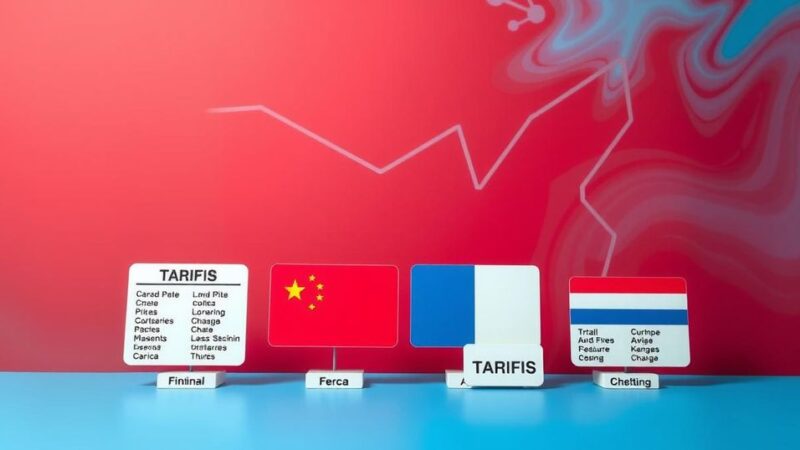Chinese media praised Trump’s decision to dismantle Voice of America (VOA), labeling it a “lie factory”. The recent executive order by Trump to cut funding for USAGM has caused concerns over press freedom and America’s global media influence. Critics warn this move could empower adversaries while some lawmakers defend the value of VOA in disseminating democratic ideals.
Recent developments concerning the Voice of America (VOA) have elicited reactions from Chinese state media, which commended President Trump’s initiative to dissolve VOA along with other U.S. government-funded news agencies. The Global Times described VOA as a “lie factory” and criticized its reporting on various issues relating to China, including military actions and human rights violations, branding it a “frontline propaganda tool.”
The Chinese Communist Party’s control over media critiques these organizations, which have presented coverage of China for decades. The editorial posits that as Americans gain a broader understanding of China, the narratives pushed by VOA will lose credibility. The Chinese Embassy in Washington declined to comment further on what it terms an “internal affair of the U.S.” and hopes for objective reporting on U.S.-China relations.
The Trump administration’s recent executive order intends to initiate substantial cuts at the U.S. Agency for Global Media (USAGM). This directive aims to minimize the functions of government-funded media outlets. Following the order, over 100,000 federal jobs have been abolished as part of efforts to decrease federal bureaucracy. Emails sent to VOA staff indicated they would be placed on administrative leave due to these organizational changes.
Republican criticisms of VOA have historically centered around accusations of bias, particularly during Trump’s tenure when it was suggested that VOA undermined U.S. interests abroad. Elon Musk publicly called for VOA’s shutdown, branding it as outdated, while Richard Grenell supported the notion of withdrawing government funding from such agencies. Kari Lake, the new senior adviser to USAGM appointed by Trump, expressed her enthusiasm for redefining VOA, aligning with the mission to reflect American values accurately on a global scale.
Despite support for the cuts from some factions, critics argue that downsizing VOA threatens America’s reputation and freedom of the press internationally. Prominent media figures, including Steve Capus of Radio Free Europe/Radioliberty and Emily Bloch of the Society of Professional Journalists, warned about the adverse implications that shutting down VOA would have on press freedom and the empowerment of adversaries such as the Chinese government.
Some Republican lawmakers defended VOA, emphasizing its essential role in communicating America’s narrative globally and in promoting press freedom even in restrictive environments. They expressed concerns regarding the impact of the budget cuts on public access to diverse information on international affairs.
In summary, the recent disbandment of the Voice of America and similar agencies has garnered mixed responses, with some welcoming the initiative while others decry the potential consequences for press freedom and U.S. global influence.
In conclusion, the disbandment of the Voice of America and related entities has sparked significant debate regarding media funding and press freedom. While some support these cuts as necessary government streamlining, others view them as a detrimental move that could weaken the United States’ global standing and diminish access to independent journalism. The political implications of these changes reveal a split in opinion concerning the role of government-funded media in a democratic society.
Original Source: www.washingtonexaminer.com






